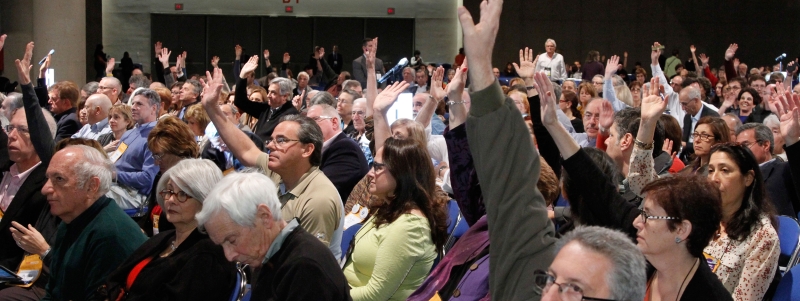BACKGROUND
We believe that the Supreme Court should reflect the rich diversity of the American people - racial, religious, ethnic, and gender - and we are conscious of the background of poverty and racism that Clarence Thomas overcame in his successful career. We honor the career of Justice Thurgood Marshall who came to the Court from a not dissimilar background and brought luster to it. It is with regret, therefore, that we conclude that Clarence Thomas is not an appropriate successor and oppose his confirmation.
Judge Thomas' record as a judge and as a government official raises disquieting questions about his ideological biases. As head of the Equal Employment Opportunities Commission, he repeatedly refused both to enforce the law of the land on discrimination against minorities, women, and the elderly and to pursue remedies sanctioned by the courts. These refusals place in substantial doubt whether he would uphold long-established remedies to discrimination, including congressionally mandated affirmative action and protections against age and sex discrimination. His stated views on natural law and the Constitution make it highly likely that he would vote to overturn established precedent in many areas of basic rights, including Roe v. Wade, thus denying women the right to choose abortion.
Judge Thomas is 43 years old. If confirmed, he is likely to serve on the Court well into the next century, shaping American constitutional liberties on issues beyond our present imagining. The Union of American Hebrew Congregations has always believed that the Constitution is the chief sanctuary of our liberties and our security, protecting our right to be different in a free and plural society. We are alarmed by the evidence in Judge Thomas' record and writings that traditional rights for which we have fought, including the right of religious freedom as protected by a wall of separation of church and state, will be placed at even greater risk if he is confirmed to join an increasingly ideologically narrow United States Supreme Court.
We believe that the United States Senate is a partner of the President in determining the future of the Supreme Court and must exercise its independent judgment as to the qualifications and suitability of Judge Thomas for the Court. The Union of American Hebrew Congregations, through its Executive Board, declares its opposition to the nomination of Judge Thomas and urges the Senate to refuse to confirm him.
Give to the URJ
The Union for Reform Judaism leads the largest and most diverse Jewish movement in North America.
